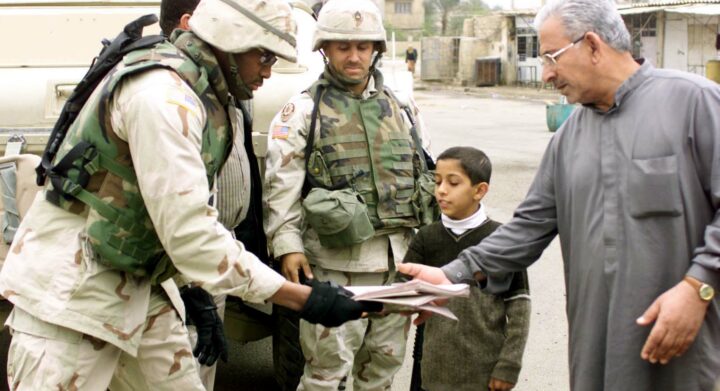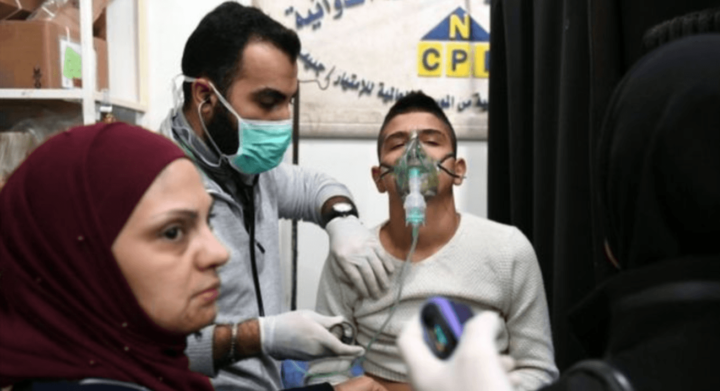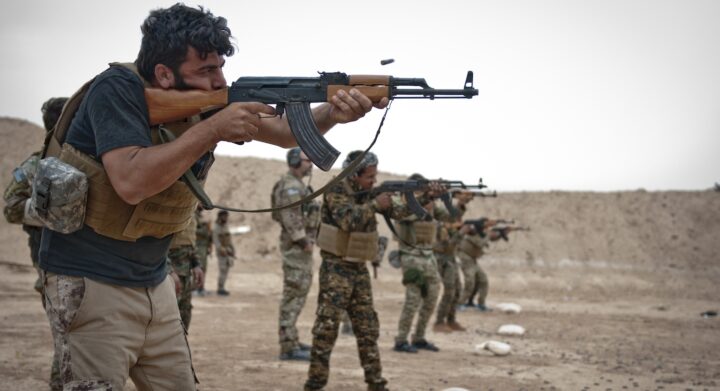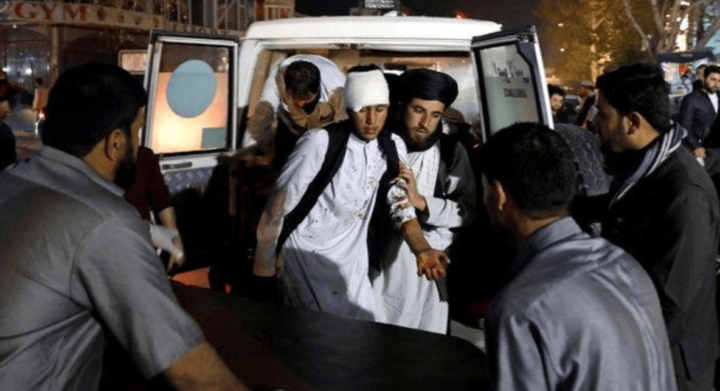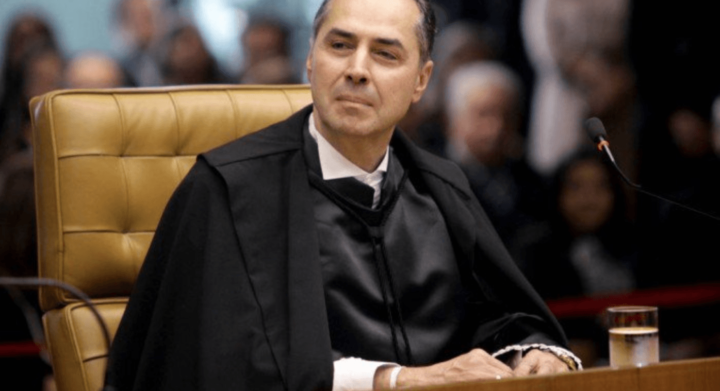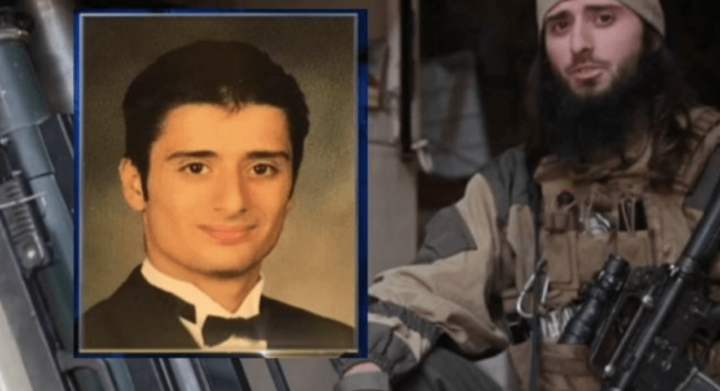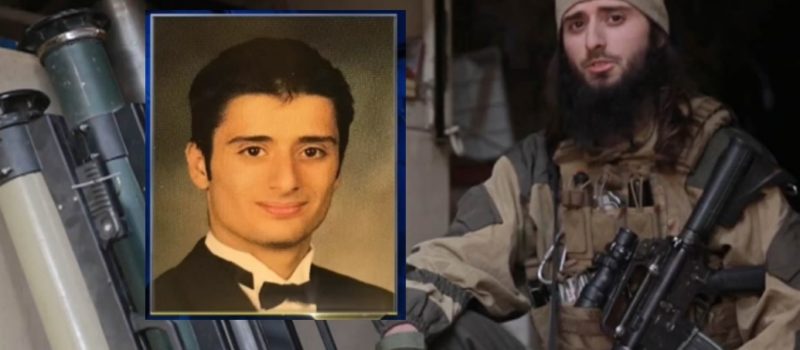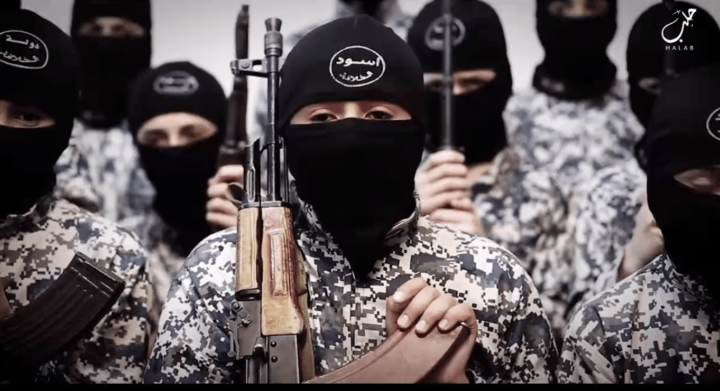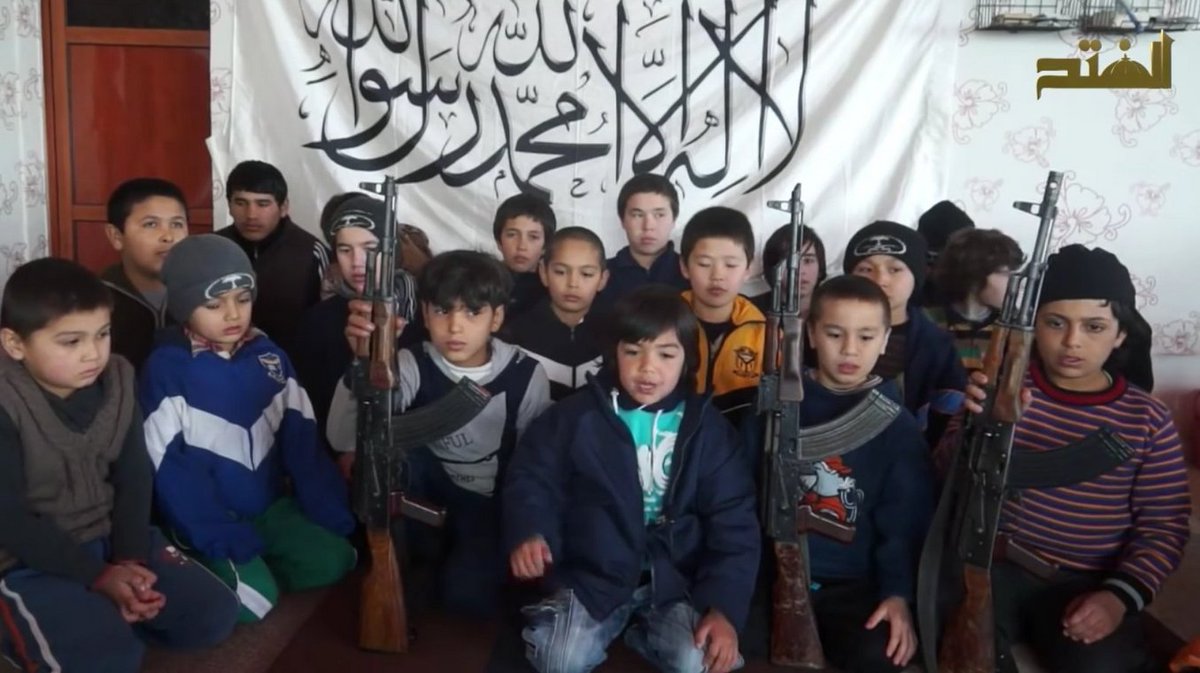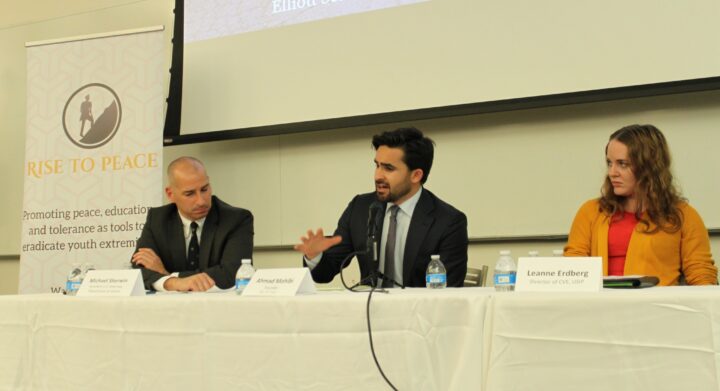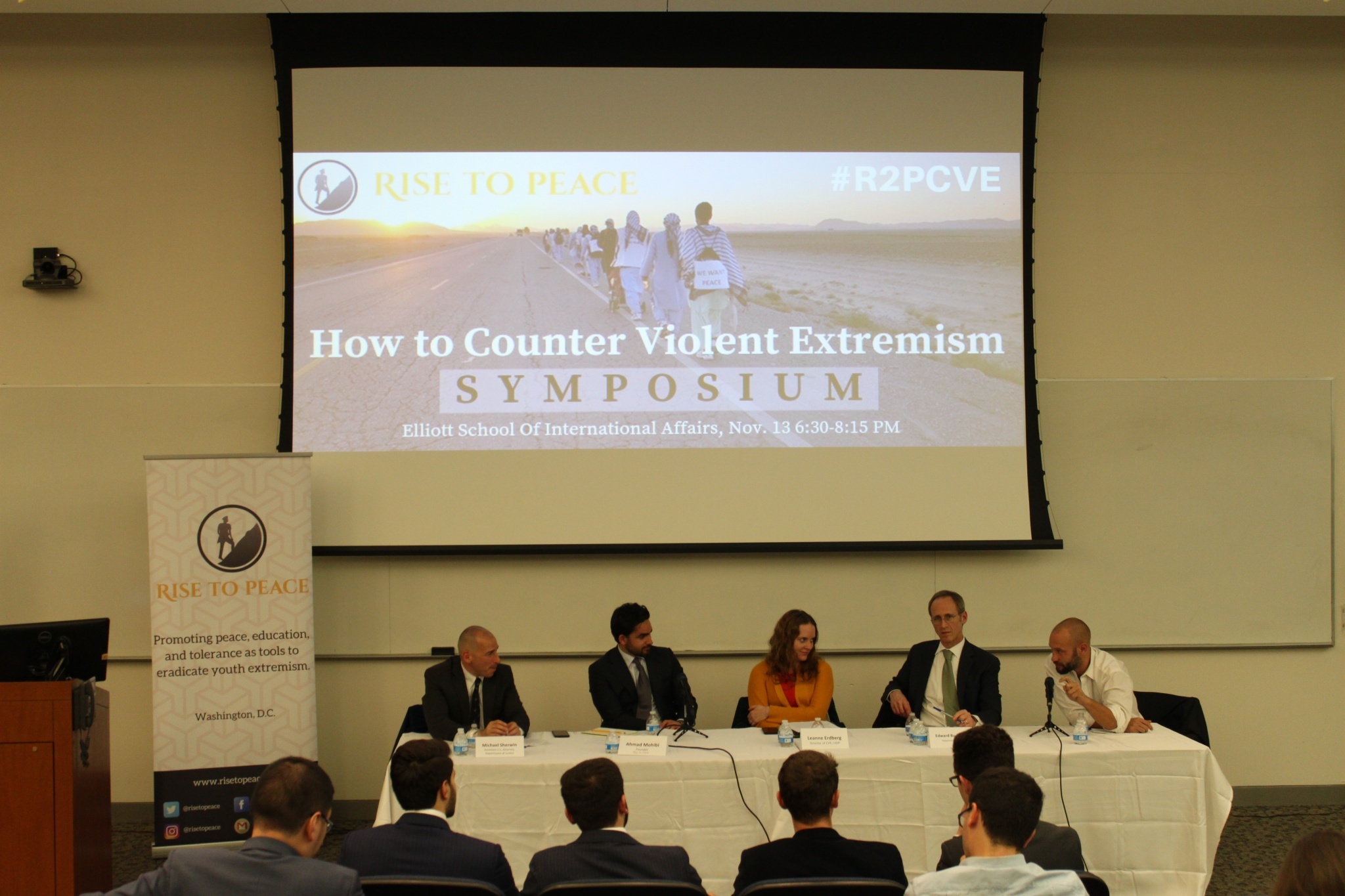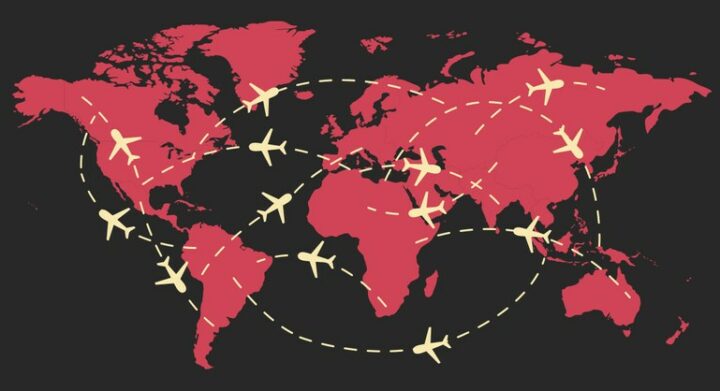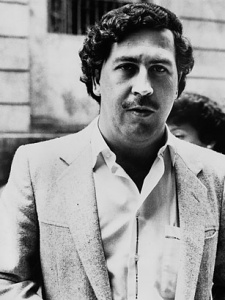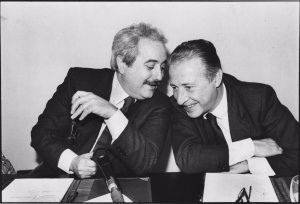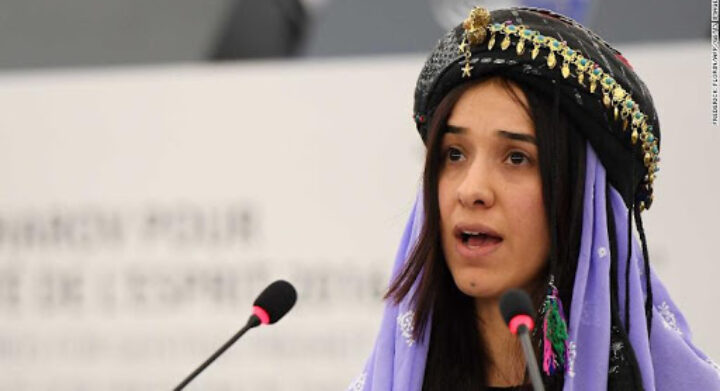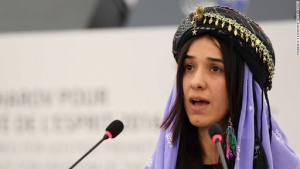
An American soldier spreads free newspapers to the people of Baghdad as part of a mission in psychological operations. Image credit: Department of Defense.
“Capture their minds, and their hearts and souls will follow”.
This slogan, popular among psyops experts, clearly exemplifies the main implications and targets of psychological operations in war.
The term “psyops” refers to strategic operations aiming to evoke emotional reactions in other people. Daniel Lerner, Social Scientist and Military Intelligence Officer in World War II, identified three levels of psychological operations:
- White Propaganda: characterized by gentle methods of persuasion. The information given is truthful and not strongly biased. Sources are cited. At this level, the most powerful techniques are narratives, framing, omissions and emphasis.
- Grey Propaganda: the source of information is ambiguous or non-disclosed, but the messages cannot be proven false. Information shows a clear bias, and a combination of omissions and selective emphasis is used.
- Black Propaganda: achieves its objectives by means of falsifications. Its purpose is to create confusion and deceive its audience about the origins of information. This strategy has proven to be the least effective and durable in the long term.
Today, psychological operations play a key role in counterterrorism programs. If properly used, strategic communication can help induce a shift in human behaviors and attitudes- potentially making psyops a kep weapon in the fight against terrorism.
According to current approaches and approved studies, in the war against terrorism psychological planned activities are expected to act on at least four areas, with the purpose of:
- inhibiting people from joining terrorist groups;
- producing dissent within groups;
- facilitating exit from groups;
- reducing support for groups and their leaders.
Before being able to change human emotions, every counterterrorism strategy must first understand what causes them. For this reason, it is of primary importance to investigate the variables that motivate people to join extremist groups before we can engage in successful psyops.
Messages spread by jihadist extremists clearly label their enemies as disbelievers and invaders. These strong and dangerous beliefs are a powerful means of promoting extremist ideology, and must be countered with our own narratives. In order to be effective, these counter-narratives should be able to reverse the effects of jihadi propaganda by promoting a positive image of democratic societies and values. Psyops can be used to introduce potential radicals to more positive images of secular society.
Peace-building is an extremely complex and delicate task, one which requires the intervention of several forces and involves a wide range of actors coming from different cultural backgrounds. Even so, we must not give up hope. The stakes are high: if we are successful, the reward will be more freedom, respect and peace for all of global society.

